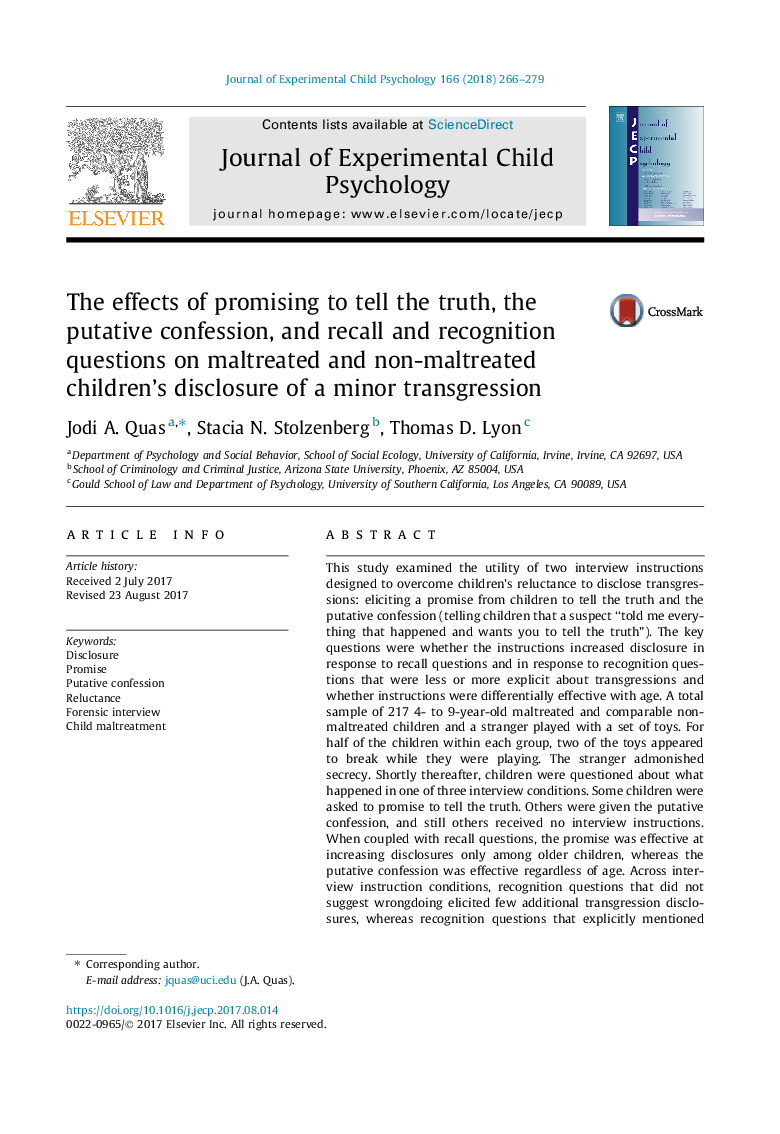| کد مقاله | کد نشریه | سال انتشار | مقاله انگلیسی | نسخه تمام متن |
|---|---|---|---|---|
| 5039868 | 1473446 | 2018 | 14 صفحه PDF | دانلود رایگان |
- Interview instructions can overcome children's reluctance to disclose wrongdoing.
- Asking children to promise to tell the truth is effective for older children.
- A putative confession instruction is equally effective across ages.
- Recognition questions that suggest wrongdoing increase true disclosures, but can induce false alarms.
This study examined the utility of two interview instructions designed to overcome children's reluctance to disclose transgressions: eliciting a promise from children to tell the truth and the putative confession (telling children that a suspect “told me everything that happened and wants you to tell the truth”). The key questions were whether the instructions increased disclosure in response to recall questions and in response to recognition questions that were less or more explicit about transgressions and whether instructions were differentially effective with age. A total sample of 217 4- to 9-year-old maltreated and comparable non-maltreated children and a stranger played with a set of toys. For half of the children within each group, two of the toys appeared to break while they were playing. The stranger admonished secrecy. Shortly thereafter, children were questioned about what happened in one of three interview conditions. Some children were asked to promise to tell the truth. Others were given the putative confession, and still others received no interview instructions. When coupled with recall questions, the promise was effective at increasing disclosures only among older children, whereas the putative confession was effective regardless of age. Across interview instruction conditions, recognition questions that did not suggest wrongdoing elicited few additional transgression disclosures, whereas recognition questions that explicitly mentioned wrongdoing elicited some true reports but also some false alarms. No differences in disclosure emerged between maltreated and non-maltreated children. Results highlight the potential benefits and limitations of different interviewing approaches when questioning reluctant children.
Journal: Journal of Experimental Child Psychology - Volume 166, February 2018, Pages 266-279
